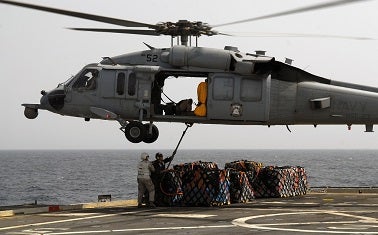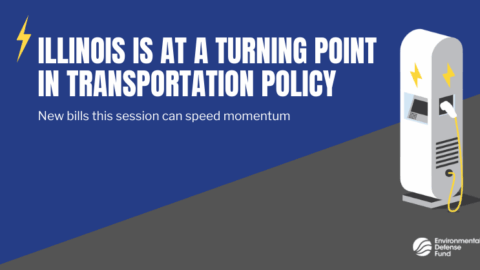Why Military Veterans are Uniquely Primed for Climate Action
 Most veterans’ climate action advocacy is not motivated only by traditional environmental issues, but also by lives lost during fuel transports amid increasing global conflicts.
Most veterans’ climate action advocacy is not motivated only by traditional environmental issues, but also by lives lost during fuel transports amid increasing global conflicts.
My advocacy is motivated by both, and as a veteran, I’m inspired by increased opportunities to promote clean energy policies that support energy security, resiliency, and military readiness.
Climate change affects us in multiple ways, not the least of which is geopolitically. Rising global temperatures are, in fact, one of the fastest-growing threats to national security.
This is why the U.S. Armed Forces are actively responding to the threat of climate change, as are many veterans who leave the military with a strong understanding of how climate issues can drive or alter missions.
Why veterans?
Veterans bring a wide range of energy-related experiences to the climate fight. Some have overseen logistics for international disaster relief missions in the Philippines. Others have secured refueling platforms at sea. Some have led oil convoys in Afghanistan.
This makes veterans a natural choice for taking up the fight for clean energy, resiliency, and national security.
We represent the full political, socio-economic, religious, racial, and ethnic spectrums. We work in every sector and industry, live in every state – and we want to contribute.[Tweet “Veterans can serve as an advocacy voice for the military’s #climate security concerns. http://ow.ly/Crn38 “]
I believe these qualities give us a competitive edge for connecting with and leading our communities when it comes to understanding and implementing actions to address climate change – and to save military members’ lives.
Many veterans who have separated from the military over the last 10 years can share a story about an operation that contributed to climate instability – or resulted from it. It makes us uniquely qualified to broadcast the connection between climate change and national security.
A growing force for climate action
Operation Free, a clean energy coalition of 5,000 veterans and national security experts, seeks to fight climate threats by tapping into these qualifications. Former service members are encouraged to draw upon their experience to educate and mobilize their communities around climate security.
Activities include drafting energy legislation and on-the-ground advocacy for clean energy policies.
These policies not only help support military readiness, but can also help the Defense Department meet its tough sustainability goals, such as reducing greenhouse gas emissions from certain sources by 34 percent by 2020.
Nearly 75 percent of the American public has a great deal of confidence in our military and troops – and for many, this also extends to veterans. Veterans can serve as an advocacy voice for the military’s climate security concerns. Our message is different from, yet aligned with, the positions of environmental groups and other advocates on clean energy issues.
Indeed, many environmental groups, including Environmental Defense Fund, collaborate with and hire veterans. Now, growing global climate security threats and the need for more domestic clean energy provide ample room and reason to do more of both.
Photo source: DOD Flickr
This post originally appeared on our EDF Voices blog.












